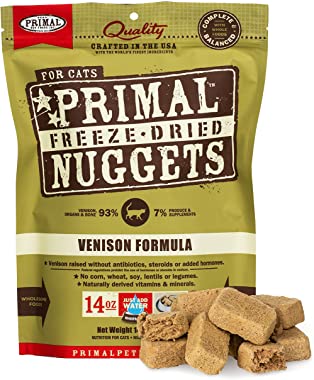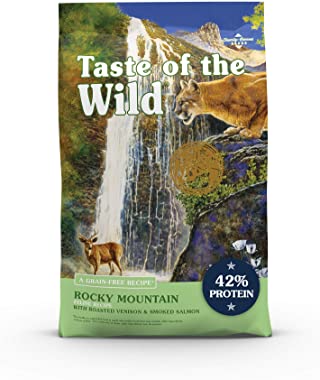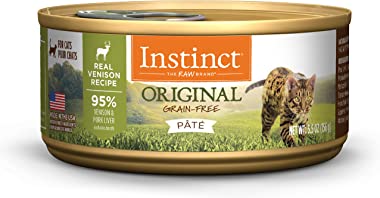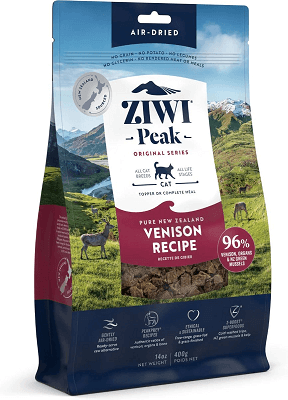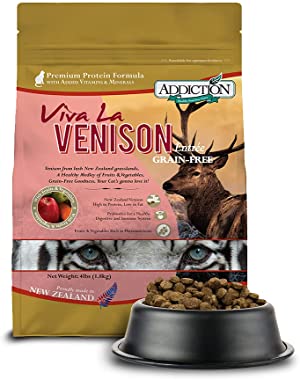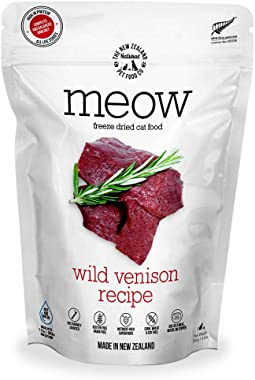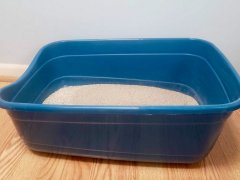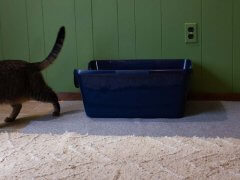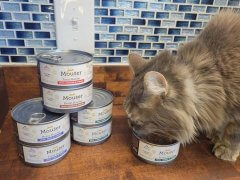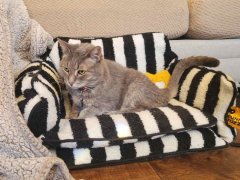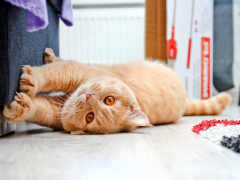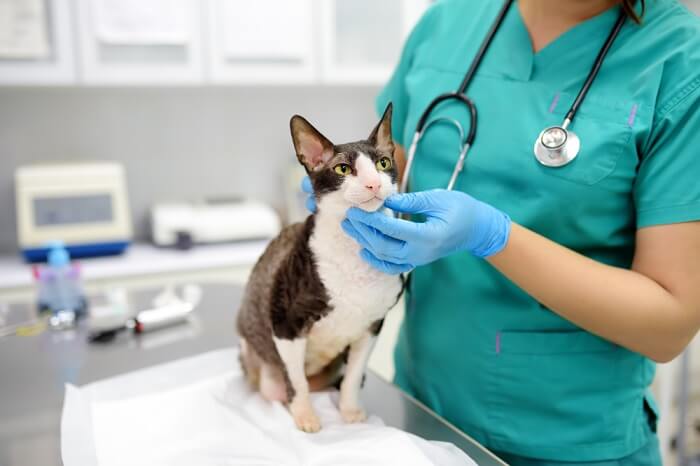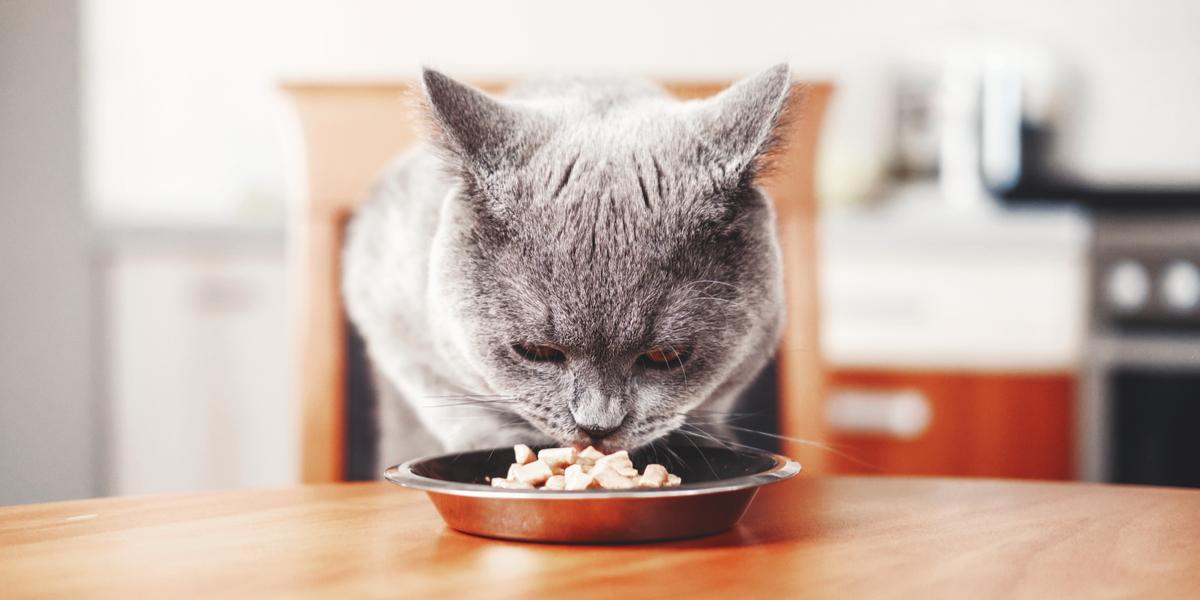
Cats are born hunters and if you’re a hunter yourself, you’re probably familiar with the taste of venison.
Venison is a lean meat that delivers significant amounts of protein with less fat than other red meats. It’s rich in iron, zinc, and a variety of B vitamins. Perhaps most importantly, it’s a novel source of animal protein for many cats.
In this guide, we’ll explore the nutritional benefits of venison for cats and touch on the cases in which you might consider it as an alternative to more common proteins. You’ll also see our recommendations for the best cat food with venison on the market.
At a Glance: Best Cat Foods With Venison To Buy




Want a quick look at the best cat foods reviewed in this article? In the comparison table below, we’ve highlighted some of the most important features of each product. You’ll find more detailed information about each product later in the article.
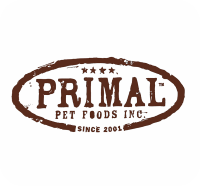
Primal Venison Nuggets Grain-Free Raw Freeze-Dried Cat Food
- Made with a single source of novel animal protein
- Contains muscle meat, organs, and ground bone
- Completely free from artificial color, flavor, and preservatives
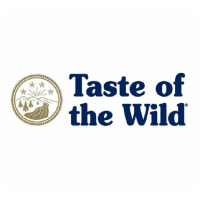
Taste of the Wild Rocky Mountain Grain-Free Dry Cat Food
- Affordably priced and highly rated
- Multiple sources of high-quality animal protein
- Nutrient-rich chicken fat as the primary added fat
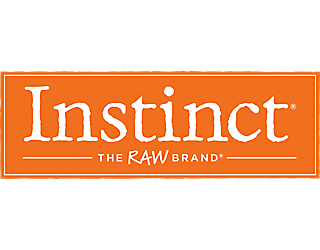
Instinct Original Grain-Free Pate Real Venison Recipe Canned Cat Food
- Rich in moisture to support your cat’s hydration
- Low total carbohydrate content
- Rich in omega-3 fatty acids from Menhaden fish oil
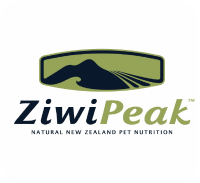
Ziwi Peak Air-Dried Venison Cat Food
- Made with a single source of novel animal protein
- High protein content
- Contains muscle meat, organs and bone
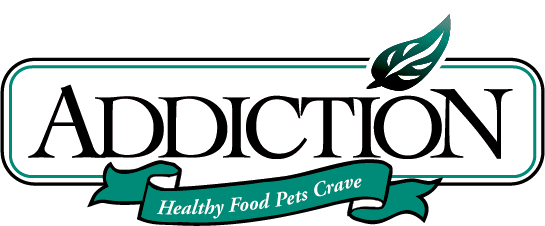
Addiction Grain-Free Viva La Venison Dry Cat Food
- Made with a single source of novel animal protein
- Fairly affordable, around $0.30 per ounce
- Supplemented with probiotics for digestive health
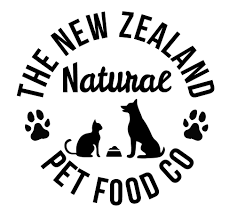
The New Zealand Natural Pet Food Co. Meow Wild Venison Grain-Free Freeze-Dried Cat Food
- Made with muscle meat, organs, and bone
- Can be used as a complete meal or meal topper
- Very high in species-appropriate animal protein
Why Should You Trust Us?
Over the last several years, we’ve spent countless hours testing the most popular pet products on the market, including cat food, cat treats, cat litter, and more. We’ve written in-depth reviews of our favorite brands as well as dozens of roundups to help you choose the right product for your cat.
Having reviewed 230 of the world’s most popular cat food brands and hundreds of formulas. We spent hours researching, contacting pet food companies, and analyzing labels. With the help of our cats, we also got hands-on experience with many popular cat foods.
Because my cat Biscuit is allergic to chicken, I’ve worked my way through a number of different proteins over the years. Venison is one of the many I’ve tested and all three of my cats always seem to enjoy it.
Should You Feed Your Cat Venison?
Though venison is commonly known to be the meat from deer, it is now a term that refers to the meat from antlered ungulates like elk and moose as well.
Like many game meats, venison is fairly lean, but it still provides an excellent source of animal-based protein for cats. As previously mentioned, it’s also an uncommon protein that is considered novel for many cats. This simply means it’s a protein most cats haven’t eaten before.
If you’re looking for a lower calorie protein than beef or pork, venison might be a good choice. It’s also an option for cats suffering from food allergies who can’t tolerate other common proteins.
In terms of nutrition, venison contains about 45 calories per ounce and 8.6 grams of protein per ounce. A single ounce of venison contains less than 3 grams of fat. This meat contains significant amounts of potassium, iron, zinc, and B vitamins with small amounts of magnesium, calcium, and sodium.
Though venison can certainly be a healthy option, picky eaters may not take to it as quickly as other options. It can, of course, still trigger food allergies once your cat is exposed, so look for signs of allergies like itchy skin, recurrent ear infections, and digestive issues.
What To Look For In Venison-Based Cat Food
The minimum nutritional requirements for cats have been established by the Association of American Feed Control Officials (AAFCO). These guidelines recommend a minimum of 26% crude protein for an adult cat and 9% fat for cats in all life stages. Keep in mind, however, that these are minimum requirements – your cat deserves a recipe high in protein and balanced with healthy fats.
Given that protein is the most important nutrient for cats, you should look for a recipe that starts with an animal source of protein as the first ingredient. Ideally, animal ingredients should be top three on the list or at least three of the top five.
Cats have no nutritional need for carbohydrates, and, in fact, they don’t derive much in the way of nutrition from them. Avoid cat foods that contain too many plant ingredients, especially starchy foods like peas and potatoes as well as plant protein carbohydrates.
If you’re concerned about food allergies or sensitivities, look for a limited ingredient diet. This is simply a recipe that contains a short list of ingredients – ideally, ten ingredients or less aside from supplements.
It’s wise to look for beneficial supplements like prebiotics and probiotics as well as antioxidants that support your cat’s immune system. Look for animal sources of omega-3 fatty acids and avoid recipes that don’t contain vaguely named ingredients, by-product meals, and artificial additives.
The Best Venison Cat Foods: Our Top Picks
Now that you understand the basics of venison food for cats and some of the cases in which it might be recommended, you’re ready to see our top picks.
As you review the recipes below, know that not all of them are single protein recipes. If your cat has food allergies, it’s wise to double-check the list of ingredients to make sure the recipe doesn’t contain the ingredient he’s allergic to. If you’re just looking to change up your cat’s diet, however, you may not need a recipe made with venison as the only animal protein.
Final Thoughts
Because your cat is an obligate carnivore, protein is the most important part of a healthy feline diet. While all animals offer a complete source of protein (one that contains all the essential amino acids your cat needs), some sources are more appropriate for cats than others.
Venison is an uncommon protein in cat food, so it’s likely one your cat hasn’t had before. If your cat has food sensitivities or allergies and you’ve exhausted your other options, venison is one to consider. Keep in mind that it’s going to be pricey, but it’s richer in protein than beef and other red meats and generally lower in fat as well.
Cats who need to lose weight or who struggle to maintain a healthy bodyweight might benefit from a lean source of protein like venison. If your cat is a healthy weight, look for a recipe that contains supplemental fat from animal sources like chicken fat or salmon oil.
Overall, the best thing you can do for your cat is choose the highest quality cat food you can consistently afford. If one of the single protein recipes on this list isn’t practical for your budget, consider using it as a food topper or as an occasional meal to boost your cat’s protein intake.
